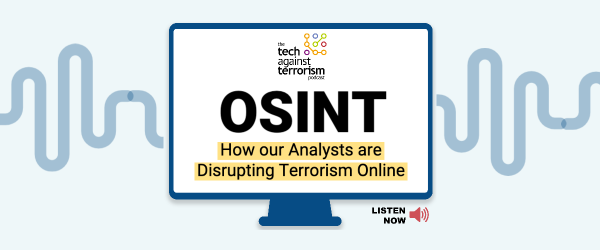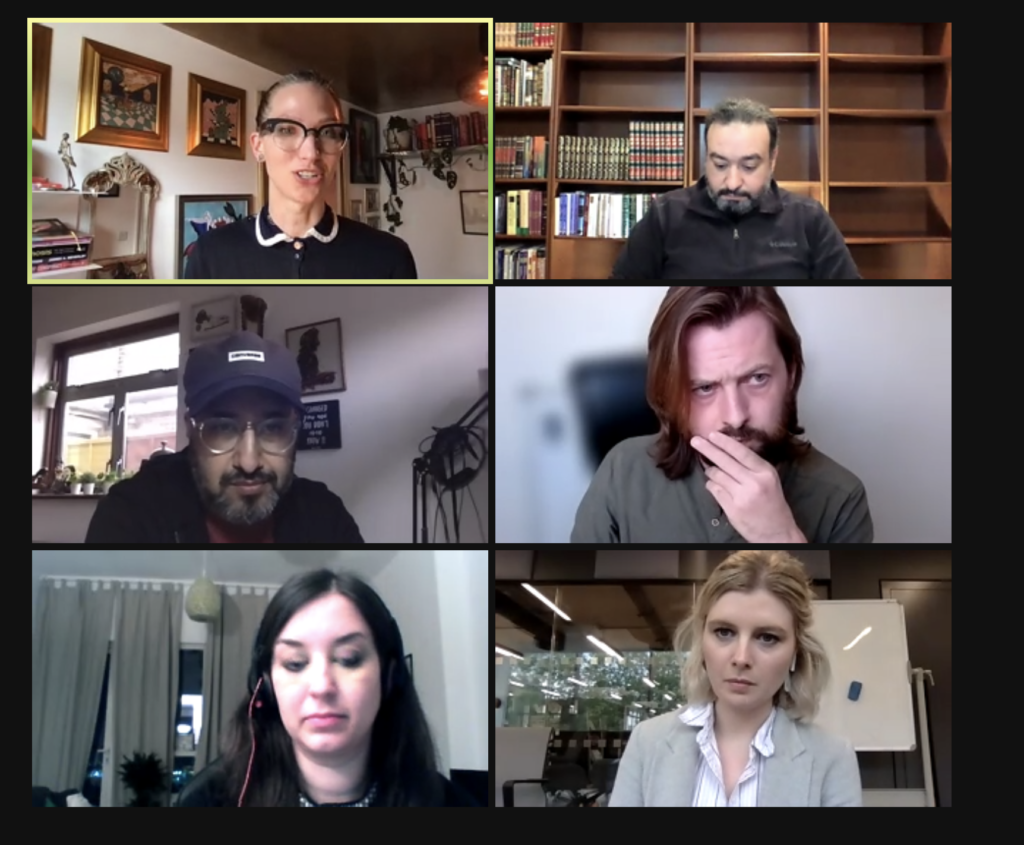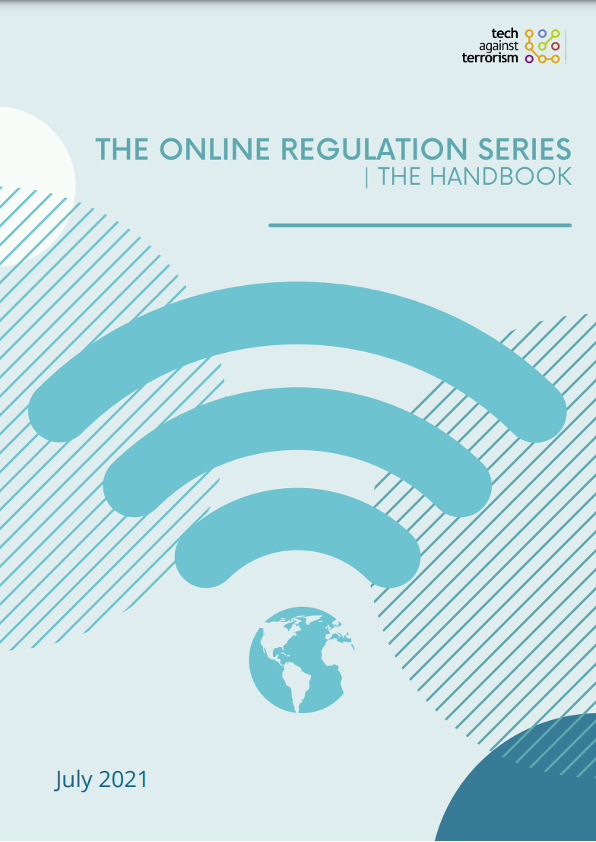The Knowledge Sharing Platform Launch
– We are excited to announce that an updated version of the Knowledge Sharing Platform (KSP) was re-launched to tech platforms on 1 July, with support from the UK Home Office. Thanks to everyone who attended our launch event. If you were unable to attend and would like to access a recording of the event, please get in touch at contact@techagainstterrorism.org
The KSP is a collection of interactive tools and resources designed to support the operational needs of smaller tech platforms. The KSP is a “one stop shop” for companies to access practical resources to support their counterterrorism and transparency efforts. It is a free platform which contains research and guidelines on topics including: policies and content standards, terrorist & violent extremist use of the internet, proscribed groups, online regulation, and transparency reporting.
To read about the resources included in the KSP, as well as the development, launch, and next steps for the platform, please see our blog post here.
If you are a tech company and would like to register for the Knowledge Sharing Platform, and gain access to all of its research and analysis and guidelines, please see here.
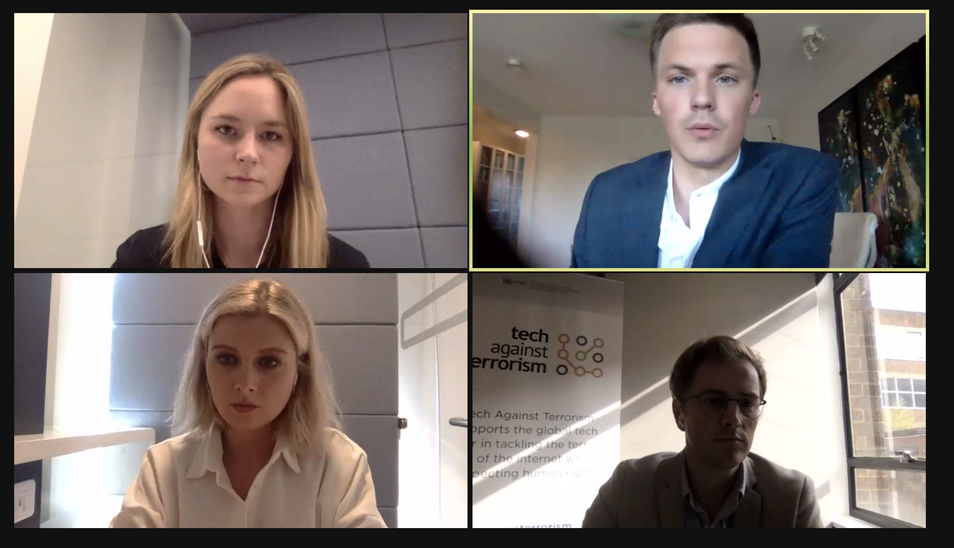
Stakeholder Processes
– On 25 June we released our Statement on Australia’s Online Safety Bill (OSB) in which we voiced our concerns with the risks of indiscriminately restricting freedom of speech online, and with the OSB’s sanctions disproportionately harming smaller platforms.
– On 16 June we published a response paper to the EU’s Regulation on Preventing the Dissemination of Terrorist Content Online. We express our concerns with the lack of recognition given to the threat of terrorist exploitation of smaller platforms, and with the little clarity provided on how smaller platforms will be supported in tackling this threat and in complying with the regulation.
– On 2 June we published our submission to the consultation process of Ofcom’s Consultation on Guidance for Video Sharing Platforms. Here we voiced our concerns on the rule of law, accountability and the consideration for smaller platforms. To read the full submission please see here.
Webinars
– Thank you to everyone who tuned in for our latest TAT & GIFCT E-learning Webinar Series on, “APAC in Focus: Regional Responses to Terrorist and Violent Extremist Activity Online”. If you were unable to attend and would like to access a recording, please get in touch with us at contact@techagainstterrorism.org.
Agenda
– Maya Mirchandani, Senior Fellow at the Observer Research Foundation, and Assistant Professor of Broadcast, Journalism and Media Studies at Ashoka University
– Shashi Jayakumar, Head of the Centre of Excellence for National Security at S. Rajaratnam School of International Studies
– Nawab Osman, Head of Counter-Terrorism and Dangerous Organizations, APAC at Facebook
– Moderators: Deeba Shadnia, OSINT Analyst, Tech Against Terrorism; and Nayanka Paquete Perdigão, Programme Associate, GIFCT
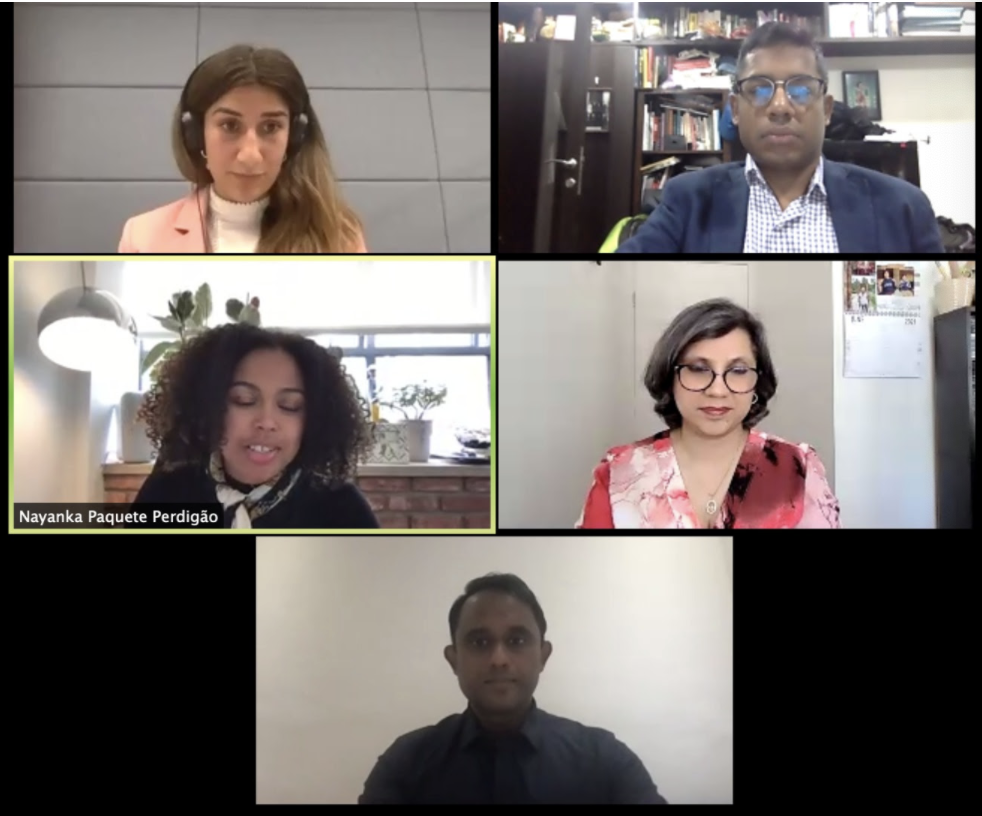
The Terrorist Content Analytics Platform
– Last month the TCAP identified and verified 1,263 URLs containing terrorist content, sent 811 alerts to 37 platforms, and 81% of this content is now offline.
– Thank you to everyone who tuned in to our June TCAP Office Hours. If you were unable to attend and would like to access a recording, please get in touch with us at support@terrorismanalytics.org. You can also request previous recordings of our Office Hours on our website here.
Speaking events
– On 28 June our director Adam Hadley took part in a panel discussion on “Handling Terrorist Content Online: Toward Transparency” as part of the UN’s Counter Terrorism Week. He developed on our Mentorship Programme and the key considerations that smaller platforms must have regarding transparency reporting.
– Our Director, Adam Hadley, presented at Wales Tech Week in a panel on identifying and removing online terrorist propaganda: challenges and responses. He highlighted Tech Against Terrorism’s work in this area, with a focus on the Terrorist Content Analytics Platform.
– Our OSINT Analyst, Deeba Shadnia, presented at an event organised by the terrorism prevention branch of the United Nations Office on Drugs and Crime. The event was co-sponsored by the United Kingdom Foreign and Commonwealth Office and was directed toward practitioners in the Kingdom of Morocco. She discussed the role of tech platforms in countering terrorist exploitation of their services, and discussed current trends in terrorist use of the internet identified by our OSINT monitoring.
– Our Senior Research Analyst, Maygane Janin, presented at the Terrorism & Social Media Conference 2021, organised by Swansea University, discussing transparency reporting and human rights considerations in platforms’ counterterrorism and content moderation approaches. She highlighted how the Tech Against Terrorism's Mentorship and Membership support tech platforms in this regard.
– Our Research Analyst, Anne Craanen, presented at a UN Counter Terrorism Week side event on “The opportunities and challenges presented by online and AI tools for the Prevention of Violent Extremism”, co-hosted by the European Commission and UNDP. She highlighted the importance of including civil society in counterterrorism efforts, and stressed how we did so in building the Terrorist Content Analytics Platform.
– On 7 July Tech Against Terrorism’s Research and Policy Director Jacob Berntsson presented at the ASEAN Regional Forum Workshop on “Preventing Terrorist Use of the Internet” where he spoke about our work on mentorship and knowledge sharing with smaller platforms.
Media Coverage
– The TCAP was mentioned in the Digital Lockers Human Rights Report which discusses ‘Voluntary Partnership Models’ in archiving media evidence of ‘Atrocity Crimes’. The report was published by UC Berkeley, you can access it here.
– In June, Tech Against Terrorism were quoted in The Observer, The Guardian and Business Insider on our research concerning different aspects of the anti-vax movement and the intricacies with the far-right violent extremism online sphere.
– On 30 June, Tech Against Terrorism was mentioned in a UN Interregional Crime and Justice Research Institute paper on “Countering Terrorism Online with Artificial Intelligence: An Overview for Law Enforcement and Counter-Terrorism Agencies in South Asia and South-East Asia”. We were quoted on our call for policymakers to provide clear regulations on what is illegal online content and how tech companies should respond to it.
What's up next?
– We are excited to announce our Online Regulation Series Handbook will be released in early July. Following up on our first Online Regulation Series in 2020, the Handbook provides insight and analysis of over 60 regulations and legislative proposals in 17 countries, and includes our recommendations for policymakers. With this Handbook, we provide a state of play of online regulation and share practical insights for tech companies to improve their understanding of the complex and fast changing global regulatory landscape.
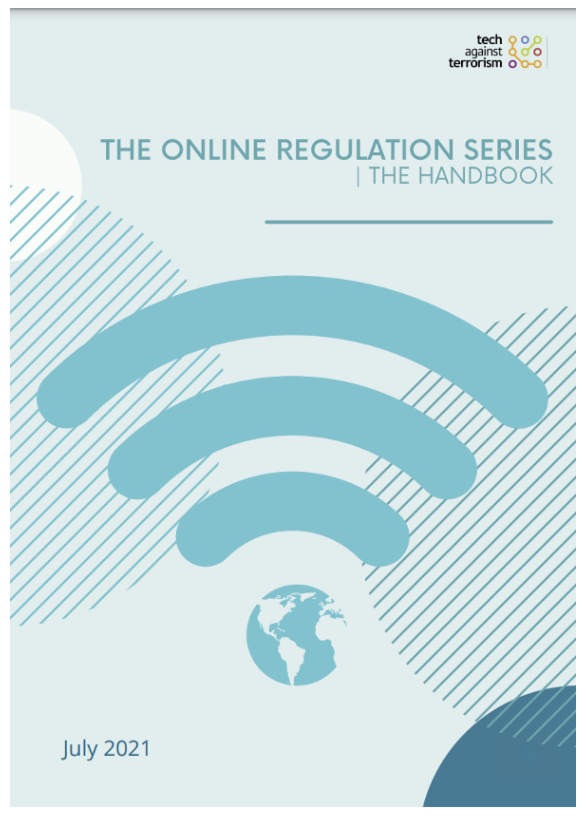
– We are set to release a TCAP transparency report which will detail TCAP statistics and policies, as well as provide information on the platform’s development. We will also elaborate on the next phase and future development.
– On 22 July we will be hosting our next webinar in partnership with the GIFCT on “Supporting Platforms’ Content Moderation and Transparency Efforts: Existing Resources and Tools”. Sign up to attend here and keep an eye out on our website and social media for the upcoming agenda.
To stay up to date on our latest work and upcoming events, make sure to follow us on our Twitter and LinkedIn!
Tech Against Terrorism Reader's Digest – 9 July
Our weekly review of articles on terrorist and violent extremist use of the internet, counterterrorism, digital rights, and tech policy.
Top Stories
– Mozilla released its YouTube Regrets report this week, showing that YouTube continues to recommend harmful and misinformative content through its algorithm. This was also found to disproportionately affect non-English speakers with the rate of “regrettable videos” found 60% higher in countries where English is not the primary language.
– Facebook, Twitter and Google privately warned the Hong Kong Government that they could stop offering their services in the City-State if authorities continue with planned changes to data protection laws. These could make the companies liable for doxing taking place on their platforms.
– The European Parliament has adopted the final version of the ePrivacy Derogation, a temporary measure enabling providers of electronic communications to scan and report private online messages for child sex abuse material. Digital rights experts have raised concerns that this might compromise privacy through “mass surveillance”.
– The second reading of the French 'Bill on Fighting Separatism' was criticised this week for posing a “risk to the single market in digital services and to Europe’s prosperity” according to the EU Commission.
The bill on separatism and its potential implications for tech platforms are analysed in our upcoming Online Regulation Series Handbook. Keep an eye out for the release!
You can find Tech Against Terrorism’s response to the DSA here. The DSA and overall EU framework on countering terrorist and other harmful content are analysed in our upcoming Handbook and in the 2020 Online Regulations Series entry here.
– A New Jersey National Guardsman formerly known as “Bishop” on the now-defunct neo-Nazi message board IronMarch was indicted by a North Carolina grand jury for allegedly supplying untraceable “ghost guns” to individuals with white supremacist ties.
– A 28-year-old man from Leicestershire, UK, was found guilty of using the Bitcoin cryptocurrency to fund the Islamic State and spreading propaganda online.
– Former US President Donald Trump is to sue Facebook’s Mark Zuckerberg and Twitter’s Jack Dorsey, claiming censorship having been suspended from both platforms.
– A provincial court in Pakistan lifted the suspension on TikTok in the country, but ordered the platform to address complaints over hosting what they describe as “objectionable content”.
Tech Policy
– Access Denied: Service Blocking in the Online Safety Bill: Heather Burns’ blog for the Open Rights Group discusses the implications of the UK’s Online Safety Bill. Burns explores how the Bill aims to eliminate online harms by making it “too dangerous, too costly, or too bureaucratically impossible for anyone to run an online service”. Burns details in this blog what powers Ofcom will have to restrict access to online content, such as “technology notices”, “service and access restriction orders”, as well as to enforce “transparency measures”. Analysing these powers, she explains her belief that the overall goal is to threaten punishments and fines to “frighten companies into falling in line”. The author further raises her own concerns over this legislation which she sees as “setting up businesses to fail” and acting as a means to “constrain our free speech”.
(Burns, Open Rights Group, 06.07.2021)
In May 2021 we published our statement on the proposed UK Online Safety Bill, explaining our concerns over a lack of considerations for smaller tech platforms and definitional clarity. You can read the statement in full here.
Counterterrorism
– ‘Staggeringly high’ number of people with Autism on UK Prevent scheme: Jamie Grierson reports on the findings of the UK’s independent reviewer of terrorism legislation, Jonathan Hall QC, and the increasing number of individuals with autism being referred to the UK Prevent scheme. In a forthcoming report, Hall is set to cite four recent terrorism cases in which the defendants were autistic, which raise the question of whether criminal justice is always the right outcome. Grierson goes on to report that Hall proposes the need for scrutiny into whether these individuals were really planning any malicious actions, or whether they are innocently developing what autism-related charities call a “special interest” in this sort of material. (Grierson, The Guardian, 07.07.2021)
– Senegal: New Counterterrorism Laws Threaten Rights: Human Rights Watch’s report discusses the new counterterrorism laws in Senegal that they fear could punish political speech and peaceful protest as “terrorist acts”, whilst “disproportionately targeting union leaders and expanding surveillance powers”. Despite legitimate concerns over the growing influence of violent Islamist groups in the Sahel region, HRW stress that the laws appear to go much further by defining a terrorist act as “seriously disturbing [the] public order” and could criminalise political opposition to the regime. HRW underlines that the laws come only a few months after a crackdown on peaceful protestors that left 10 dead, and argue this could be an example of creeping encroachment on fundamental rights and freedoms. (Human Rights Watch, 05.07.2021)
Islamist Violent Extremism and Terrorism
– ‘Taliban Try to Polish Their Image as They Push for Victory: Najim Rahim and Thomas Gibbons-Neff analyse the actions of the Taliban as they continue to make gains in Afghanistan whilst the US prepare to remove its troops by 11 September. The terrorist group is attempting to promote itself as a legitimate opposition to the Afghan government, but the authors underline that Taliban fighters have been enacting revenge on local populations that have previously sided with the government by killing dozens of civilians and displacing hundreds more. Rahim and Gibbons-Neff note that the group is “playing the long game” to move away from the “pariah and isolated state” they ruled in the 1990s, but will need to soften their conduct to appeal as a genuine opponent to the Afghan state. (Rahim and Gibbons-Neff, The New York Times, 06.06.2021)
For any questions or media requests, please get in touch via:
contact@techagainstterrorism.org
